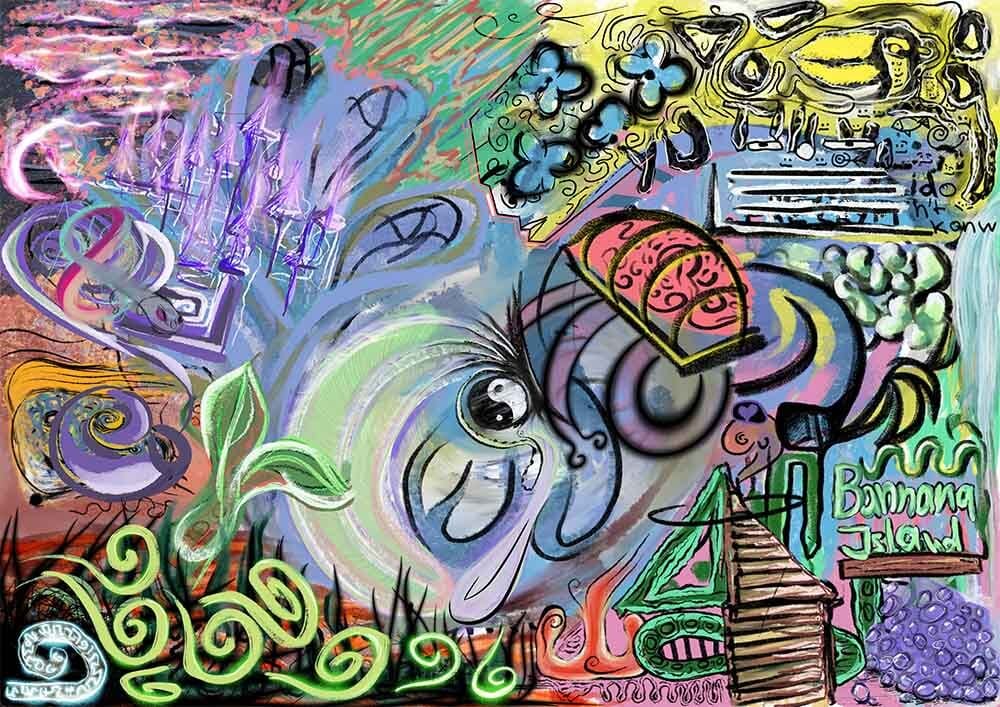Raw Milk and Why It's Actually Healthy (or Unhealthy)
We all desire to feel good. After 28 years, I discovered that my brother and I were never breastfed. The known risks of not being breastfed are significant, which led me to start drinking certified organic raw milk from the Azores. This is my experience with raw milk.

My friends,
Gut Health.
It’s the core of lot’s of problems. And you want to feel comfortable in your own skin.
We all kind of yearn for just feeling good, don't we?
Now imagine: Your hormonal balance is on point.
You got enough lucky hormones; you don't have to chase them with compensative tactics like doom scrolling on Instagram. Imagine warmth flowing through you without burning, and coolness chilling your brain without freezing. Imagine everything in your sensual experience feeling just right.
This is what we want. To feel good in our own skin.
And today I want to offer a simple shift of focus, which will bring you closer to solving this hurdle in life: to consistently feel better in your own skin.
Gut City is Huge
I once shared an article with you about how important gut health is. Let me share some numbers to show you how impactful this is:
The gut's importance goes far beyond digestion; it's a complex system that's vital for our overall health. Yet, it's alarmingly overlooked.
The human gut has over 100 trillion microbes—yes, 100 trillion—outnumbering our own cells by a lot.
The "gut-brain," also known as the enteric nervous system or "second brain," has about 168 million neurons.
Serotonin, often called the "happy hormone," controls digestion in many ways within the human gut. Up to 95% of this mood-regulating hormone is released into the body by certain gut cells.
The gut also makes a lot of dopamine, in places like the stomach lining and pancreas. It's believed that 50% of your dopamine comes from your gut microbiome (bacteria and fungi).
I want you to see your gut not just as a digestive organ, but as a busy city. It is, quite literally, the most alive organ.
Knowing this, I'm always looking for ways to improve my microbiome.
Human/or Cow Raw Milk (is Un/Healthy)
So, I started drinking certified organic raw milk from the Azores. Raw milk can be risky because harmful bacteria can grow in it. But milk is healthy mainly because of the good bacteria and enzymes it contains. Bad bacteria can thrive when cows are kept in unclean conditions, mass-produced, and fed corn and grains instead of clean grass.
That’s why the common belief now is that cow's milk is unhealthy because it's been pasteurized. And that’s true. This means it’s heated above 60 degrees Celsius, which kills all living organisms and beneficial components like enzymes. Cow milk in normal stores is unhealthy. This means your body misses out on these good things, and it also has to use its own enzymes to digest the pasteurized milk.
So, you’re loosing those enzymes. You’re investing and not profiting.
To signify the importance of those bacteria, let’s look at the importance of breast feeding your children. Getting in contact with a variety of good bacteria is sooo important for your health, especially as a child!
I learned it after 28 years of being alive: my brother and I were never breastfed as babies. I didn't even know that. Naturally, I was curious about the potential risks of not breastfeeding, so I asked Gemini and got the following answer on the effects of not breastfeeding your child:
- Increased Risk of Infections Without the immune protection from breast milk, babies who aren't breastfed are more likely to get infections, including:
- Respiratory infections (colds, flu, pneumonia, asthma).
- Gastrointestinal infections (diarrhea, vomiting, stomach flu).
- Ear infections (3-4 times more frequent).
- Urinary tract infections and fungal infections. Breast milk also helps good gut bacteria grow, which can be less strong in babies who aren't breastfed, potentially allowing harmful germs to grow.
- Digestive and Metabolic Problems Babies who aren't breastfed might have digestive issues because formula is harder to digest. Their kidneys might also work harder, possibly leading to long-term kidney damage. There's also a higher chance of obesity and diabetes (Type 1 and Type 2) later in life, possibly because hunger and fullness cues are less regulated. Some studies also suggest a higher risk of autoimmune diseases.
- Oral, Dental, and Speech Development Not breastfeeding can stop the jaw, palate, and mouth muscles from developing properly. This can lead to crooked teeth and more cavities. There are also signs of more speech problems, hearing issues, and poorer hand-eye coordination, possibly linked to less muscle activity and early brain stimulation from nursing.
- Brain Development Breast milk has important fatty acids for brain development. Without them in the best form, thinking skills might be affected. Some studies suggest slightly lower thinking abilities and more learning difficulties in children who weren't breastfed. They might also have more sleep problems and find it harder to handle stress.
- Emotional and Social Development While babies who aren't breastfed can still form strong bonds, breastfeeding usually creates a deep physical and emotional connection between mother and child. This strengthens feelings of security and lowers stress hormones. Some research suggests that breastfed children might have fewer behavior problems and better ways to handle stress later in life.
- Sudden Infant Death Syndrome (SIDS) The risk of SIDS is about twice as high in babies who aren't breastfed compared to those who are.
After reading this, I thought:
"Wow! It makes sense why I've had so many digestive problems over the years, and why my digestion was so sensitive."
And if you know a bit about how gut health connects to hormone production, you'll understand why anxiety is so closely linked to poor gut health.
If you want to read more about the sheer importance of gut health and some practical tips, read my old (but not less important) article:

Thanks for reading and talk to you next week again!
Kiss kiss, Tarkan





